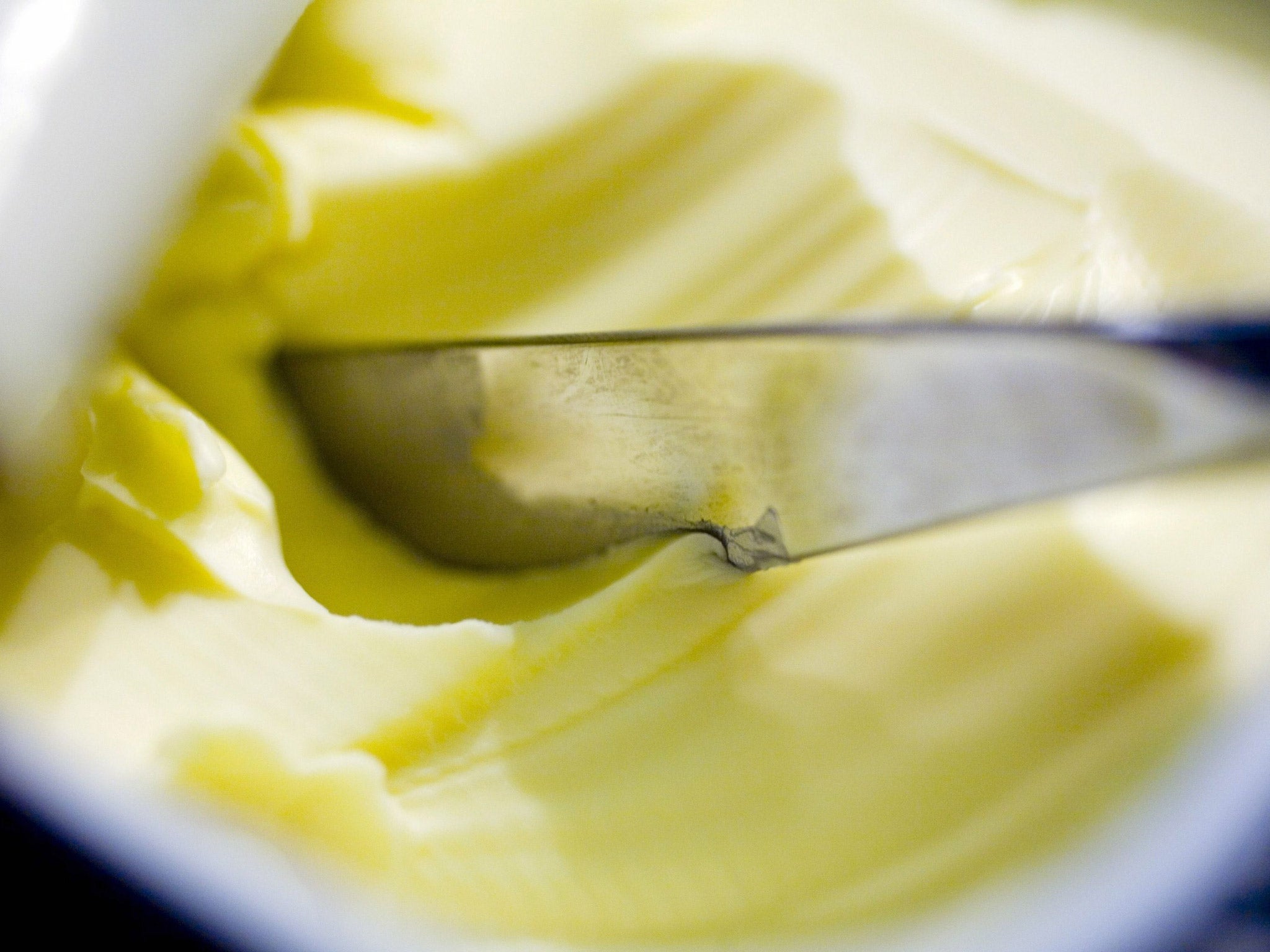Margarine's not bad - but butter's better
Remind me again why butter is so bad? Oh, that’s right. It’s high in fat. Newsflash: we need fat. Good old natural fat, in moderation.

This week’s food hysteria came and went in a matter of hours. The frantic declaration that margarine and non-dairy spreads could cause heart problems and be “worse for you” than butter was followed almost immediately by a debunking.
Research published in the British Medical Journal suggested that [specifically] middle-aged men may be increasing their chances of developing heart disease by eating margarine rather than butter - but the findings are from 40 years ago and have only just been comprehensively analysed, so might have to be taken with a pinch of low-sodium condiment. The NHS sniffly rebuffed it on its website pronto.
So, it’s back to that tub in the fridge, then? Well, not so fast. I’ve always believed we should be suspicious of any food that isn’t presented in its natural state. I’m in danger of boring myself with the mantra “if you can’t pronounce an ingredient, don’t eat it” but as a rule of thumb, it does make sense (no need to respond with a quip about difficulties with tomato/tomato, thanks). Odd additives and formulations occur in processed food. Margarine and other creatively titled non-dairy spreads vary wildly in their components but are all processed, by their very nature.
The name isn’t fake – well, not in the way I’d thought. It turns out to be a myth that margarine got its name from the daughter of its inventor. Which really is a shame, because I’ve always wanted to know if it really should ever have been pronounced marg as in Marjory or marg as in Margaret (yes, there was a time when margarine was said with a hard g). Turns out it relates to margaric acid. Mmmm, there’s nothing like a crumpet dripping with acid, is there?
Everything that manufacturers put into these spreads to make them good for us can be found – in a more natural state – in other foodstuffs. So why the obsession with getting our omegas and our polyunsaturates in one factory-enhanced blob? Remind me again why butter is so bad? Oh, that’s right. It’s high in fat. Newsflash: we need fat. Good old natural fat, in moderation. Nothing better on a spud than butter.
The only people, perhaps, who should be allowed to use margarine are 1) the nice people from the RSPB who used it to clean the waxy residue off seabirds washed up on the Devon coast last month and 2) Mary Berry, who uses it in her cake recipes. It creates, apparently, a lighter sponge. But if you eat a lot of cake, whatever the fat is inside it, you’re on your way to health problems anyway. Eat an apple already.

Join our commenting forum
Join thought-provoking conversations, follow other Independent readers and see their replies